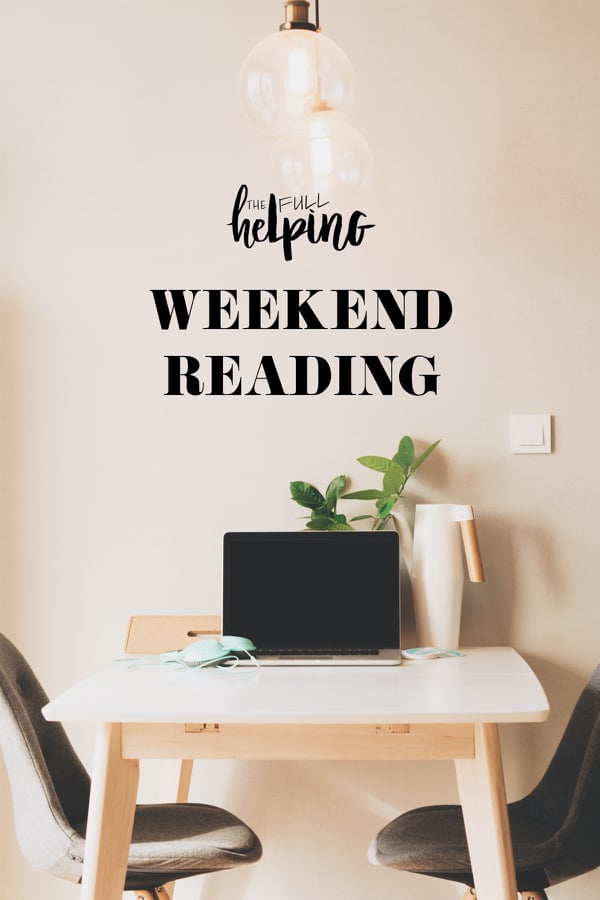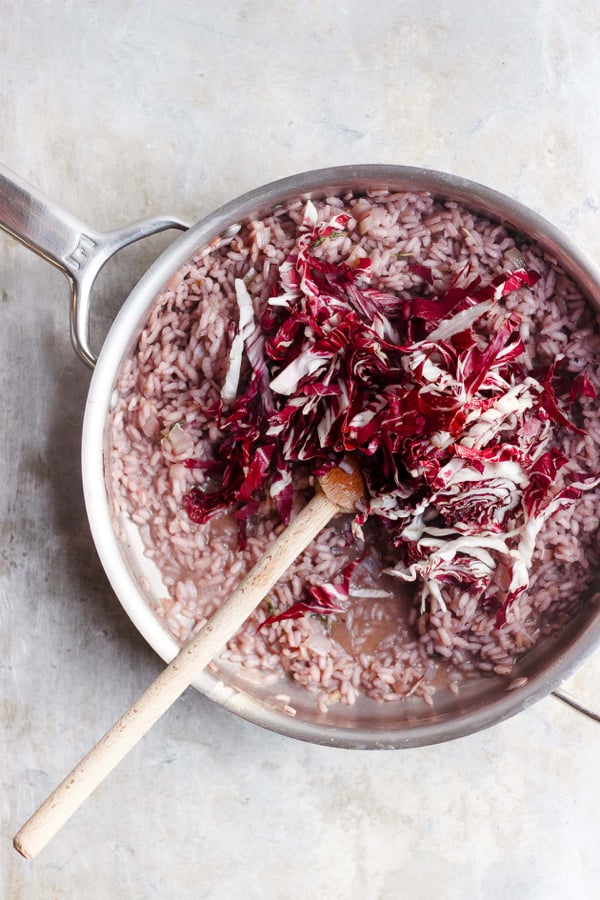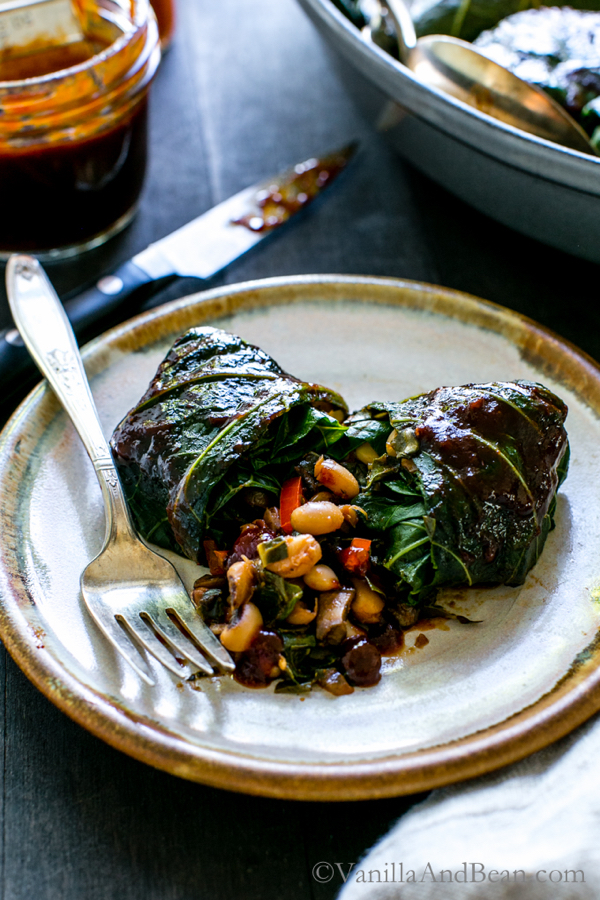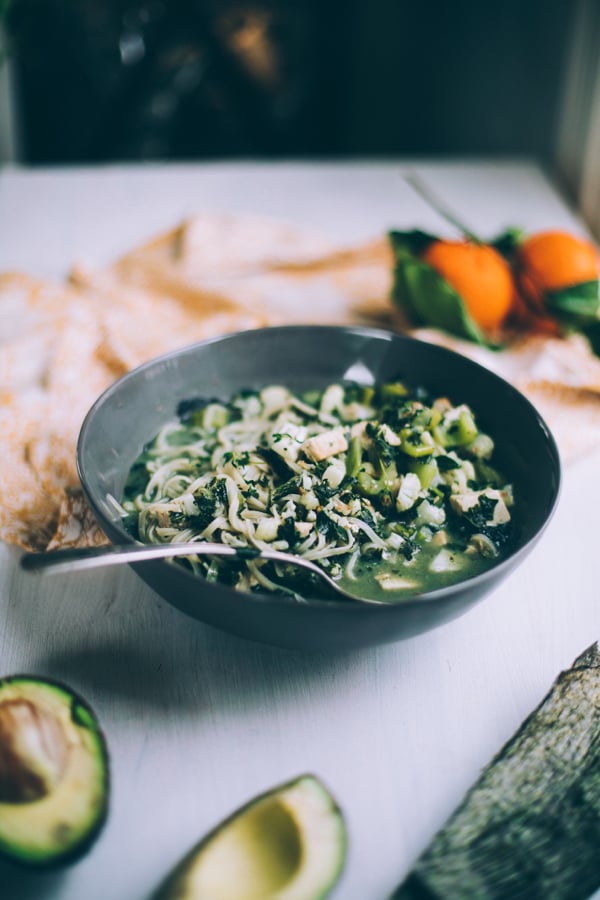Once upon a time–and by that I mean as recently as 8 months ago–I spent a lot of time reading articles and lists and impassioned bits of advice about productivity. I listened to podcasts about time management, efficiency, and entrepreneurship. In spite of the fact that I wasn’t crushing my goals or organizing my time in some spectacularly economical fashion, I remained fiercely attached to the idea of operating that way.
In many ways the fixation on productivity was an expression of longing for my old self, for the person who could accomplish 10 tasks before 9am. I missed being someone who impressed everyone with my multitasking, who took on more than seemed advisable and somehow carried the load.
I miss this person. I miss her single-minded focus, her boundless energy and self-assurance. I miss having constant reminders of how capable I am in the form of daily accomplishments and completed tasks. It’s been a long time since I felt spectacularly efficient. I need to tackle projects one-at-a-time, and sometimes I need to stop and do nothing at all, because my head is whirring and I feel too overwhelmed to make a start.
Interestingly–so interestingly–none of the terrible things I thought would happen have happened since I slowed down. I probably get less done, but there have been no catastrophic consequences. My work has not collapsed. I’m not bankrupt. I haven’t permanently disappointed or infuriated professors, colleagues, or friends. I’ve adjusted my schedule and put a lot of stuff on hold. It’s a challenge to my impatience, but that’s about the extent of it.
In fact, the only thing that’s happened as a result of all this is that I’ve had to change my perception and expectations of myself (no small thing, I realize, but still: not a disaster). And as a show of respect for that process, I’ve lately been letting go of my fixation on living a perfectly productive life. I’ve stopped seeking out advice on how to manage my time, stopped reading about the five things that so-called successful people do each morning. I’m just greeting each day with an open mind and a vow to work as mindfully as I can.
There’s a lot of really smart, insightful advice out there about getting stuff done. I wonder, though, how useful it is for me at this juncture in my life. I think it heightens my anxiety about what I’m not doing while also clouding my appreciation of what’s being experienced or seen or done outside of my to-do list. Letting go of my old pace felt like a loss at first, but I’ve gained so much as a result.
I’m bringing more thoughtfulness and intention to my blog, for one thing. The words and food I share these days feel more heartfelt than much of what I shared during my post-bacc. My day-to-day communications–from emails to passing conversations with strangers–feel honest and meaningful, rather than rushed and impatient. The time I spend with friends is less hurried and often richer as a result. Even the small, everyday stuff, from cooking to cleaning my home, feels fuller.
In her article on learning to live with and love anxiety, Laura Turner notes that
…there is an American obsession with productivity that has infiltrated how we deal with anxiety. In recent months I’ve come across a spate of articles advising that people, by some alchemical turn, spin their anxiety into something better, more useful. “Turn Your Anxiety Into Productivity/Success/Excitement,” business-minded headlines declare.
I worry that I am only as valuable as I am productive. A recent bout of sickness kept me in bed for nearly a week and inspired a handful of panic attacks focused on my lack of productivity. Stuck inside without even the ability to write a coherent sentence, I felt my own worthlessness as near to me as the yellow bowl I kept by my bedside for occasions when I couldn’t make it to the bathroom to throw up. To be productive is to have constant justification for existing: See? I did this. I’ve earned another day. If I can outwork my anxiety, perhaps I can outsmart it, outstrip it, outrun it.
As a fellow anxiety sufferer, I know the feeling. My guess is that many of you know it, or have known it in the past, too.
Turner goes on to claim that anxiety does serve a purpose in her life, not because it can be translated into something “better” but rather because it is so powerful that it forces us to stop and pay attention. “Anxiety functions as an important warning system, alerting people to potential threats,” she writes. And for this reason, anxiety is often the first sign that something in our lives has gone awry, that we’re headed in a direction that isn’t safe, or right, or healthful for us.
For me, irritability and anxiety were powerful warning signals that I was burning my days, moving so quickly and with so much focus on what was or wasn’t getting done that I could no longer see the forest for the trees. Anxiety slowed me to a halt, literally; as anyone who copes with anxiety or panic can attest, you can’t go very far or get much done when the simple act of breathing feels like a challenge. In forcing me to stand still, anxiety also forced me to take a good look around me, to see what I had been missing as I rushed from one place to another.
I wouldn’t wish anxiety on anyone, but I can see that it has served a purpose in my life, just as it served a purpose in Turner’s. I wish I’d been able to learn my lessons another way, but if anxiety was my teacher, that’s OK. I don’t want to glamorize anxiety–mine or anyone else’s–but in my case there are reasons to acknowledge, and maybe even to thank it, all the while hoping it will visit me less often now that I’ve learned to listen.
I hope that Laura Turner’s essay will resonate with some of you. And I’m sharing a few other, incredibly powerful reads about health this week. One is a Jon Mooallem’s profile of a hospice director who is trying to challenge the way we think about the experience of death. Another is Anna Altman’s powerful essay about migraine headaches and other chronic illness. Finally, I’m linking to the San Francisco Chronicle‘s incredible longform piece about survivors of the AIDS epidemic in San Francisco in the 80s, which was published last year.
I hope you enjoy the words, and also these recipes.
Recipes
I wish I’d made a batch of Jackie’s butternut squash and bacon soup before this chilly weekend! It’s simple and delicious, and it features one an awesome vegan product (the benevolent bacon strips from Sweet Earth Foods).
Radicchio is one of my favorite winter vegetables, and I definitely don’t spend enough time finding ways to cook it (usually, it ends up in salads). I love Sherrie’s idea to make a creamy, pink-hued radicchio risotto. She’s got a traditional version and a vegan version with cashew cream in the post.
I’m always on the hunt for new ways to enjoy BEPs, and right now I’m loving Traci’s BBQ black eyed pea collard rolls; they hit that sweet spot of being both very green and very wholesome.
I can never have too many vegan chili recipes, so I was delighted when Nina shared her loyal lentil chili recipe from her new book, which looks so sumptuous and beautiful!
Finally, a healing and comforting winter dish that comes together in a flash, courtesy of Renee at Will Frolic for Food. Her super green miso is packed with veggies, miso, and legumes, and it’s beautiful to look at.
Reads
1. First, Laura Turner’s meditation on anxiety, via Pacific Standard Magazine.
2. Anna Altman’s thoughtful, illuminating essay on the experience of being a chronic migraine sufferer. This is as much a piece about chronic pain as it is migraines in particular, though Altman has a lot to say about the uniqueness of migraines, too: “It’s inconceivable to most people that this is it—there is no other, underlying condition. The headaches are the condition itself.”
Altman weaves together her own experiences as a patient with her recollections of watching her mother struggle with neuropathy and sometimes crippling chronic pain as a child. I have no experience of migraines, but I think I understand a little better what it’s like to experience them, thanks to Altman’s descriptions. She also helps to explain why chronic illness is so difficult to explain to outsiders:
Pain is a message from the body to the mind that something is wrong. Headache pain, though, is opaque, and its source and its message are hard to divine. There’s no tissue damage, no trauma, no infection. A headache can alert one to something as sinister as a tumor, or it can come and go with a rainstorm.
A migraine attack blurs the distinction between “sickness” and “health.” Headache, dizziness, nausea, trouble concentrating, fatigue, poor verbal skills—these symptoms could just as easily result from a hangover or a bad night’s sleep. That the same symptoms can result from irresponsible decisions gives patients an air of culpability. The same can be said for many of the symptoms of chronic autoimmune disease, fibromyalgia, and chronic fatigue syndrome.
Altman doesn’t sugar-coat her narrative, but she ends on a resilient note:
Illness is the space where I came to understand the limitations of my being. It’s a lesson we all learn but one I learned harshly and twice, first watching my mother and then enduring my own suffering. Now I know that I can lie down for hours without moving. I can meditate. I can stare at the wall and not despair. If I discovered something redemptive in this experience, it’s that capacity for stillness.
In Chicago, I asked my mom how I could face this future. She didn’t miss a beat. “You will make a new life for yourself,” she said. I believe her.
3. A few weeks ago, the New York Times Magazine published Jon Mooallem’s profile of BJ Miller, a physician and hospice director who is working to create a different, more normalized and dignified experience of end-of-life care. Miller is famous for his capacity to connect deeply with patients, and part of this is because he himself has crossed paths with death. As a college student, Miller suffered an accident that left him a triple amputee. According to the author of the article, Jon Mooallem,
He now talks about his recovery as a creative act, “a transformation,” and argues that all suffering offers the same opportunity, even at the end of life, which gradually became his professional focus. “Parts of me died early on,” he said in a recent talk. “And that’s something, one way or another, we can all say. I got to redesign my life around this fact, and I tell you it has been a liberation to realize you can always find a shock of beauty or meaning in what life you have left.”
The article goes on to profile Miller’s guidance of the hospice care of a young man who was diagnosed at only 27 years of age with mesothelioma. It’s a moving portrait of how the stories of physician and patient intersect.
4. Early in 2016, Erin Allday, a health reporter for the San Francisco Chronicle, profiled the “last men standing” from the AIDS epidemic of the 80s and 90s. I found the article recently, and I had to stop and start reading it many times before I could make it all the way through.
The tragedy of the article isn’t only the memory of a lost generation, or the grief of those who watched their friends and lovers die too young. It’s also the story of men who were told to prepare themselves for death, but death never came.
Instead, it came for the people they loved, while they lived on, in many cases having made life decisions as if the end were near. Many of them have suffered economically and professionally as a result, surrendering important pursuits and endeavors in the expectation that they wouldn’t have time to see them to fruition.
The article is painful to read, but I think it’s powerful and important. Many of us have had our awareness of AIDS filtered through statistics and news headlines, but this essay is all about stories: the stories of people who lived through it years ago and live with it still.
5. I was really charmed with Sam Anderson’s essay about windows, which is framed by the comparison of windows and screens. We spend a lot of time gazing at the latter these days, and perhaps not enough time looking out of the former. Anderson recounts a recent experience in which his observation of events outside his window forced him to contend with his own preconceptions and assumptions. It’s humble, humorous, and wise.
Enjoy! I’ll be back this week with a new breakfast bowl recipe, some ideas for incorporating fermented foods into everyday meals, and my closing thoughts on the Veestro Yes I Can challenge.
xo
You might also like
I didn’t use to be much of a procrastinator, but unfortunately it’s a tendency that seems to creep up on me more and more with each passing year. It’s probably a good thing in some ways: back when I was doing my post-bacc, I was so overcommitted in so many directions that I actually couldn’t afford to delay doing anything. And while that wasn’t true for all of grad school, it was true a lot of the time. My schedule nowadays is more…
Happy Sunday! Hope you had a chance to relax, unwind, and (of course) savor some tasty food. Here’s a roundup of the dishes that caught my eye this week, followed by the articles that made me think. Stop the presses. Nina has made a vegan version of Tsoureki, the Greek New Year’s bread I thought I’d never eat again. I can’t wait for January. I’m drooling over the creamy zucchini pasta with dill sauce (speaking of Greek flavors) that Emma has created…
Happy Sunday, all. For those of you who were busy celebrating July 4th, at home or far away, I hope you had a lovely holiday. The day started off with gray skies and cool temperatures here in NYC, so it didn’t really feel like the 4th, but by late afternoon the clouds had lifted and the sun was peeking out, and it was dry and lovely. Steven and I had a restful afternoon, followed by a small gathering with friends to watch fireworks light…
I’m keeping this weekend reading post short and sweet, mostly because my writing energies have been wrapped up in posts for NEDA week 2019, which begins tomorrow! It won’t be a regular week of recipe-sharing here on the blog, but rather a week in which I take some time to celebrate the recovery process, with all of its challenges and gifts. If you take interest in this topic, perhaps you’ll check in from time to time. For today, I wanted to share my…







Leave a Comment
nice..blog very helpful
Absolutely relatable. I used to face the same syndrome – feeling useless if I am not working like a machine. But since taking a break I feel that my body and my mind are thanking me for it. Also, lovely recipes. Do keep it up!
thank you thank you THANK YOU for including my miso! i love these round ups you do! They must take forever to put together, they’re so thoughtful. Appreciative of your mind and your heart! xoxo
Wow, Gena this was amazing. Your writing is always so inspiring. I feel like I connect with you in so many ways, being in the sciences, history of ED, anxiety, introvertedness, on and on and I always connect with your Sunday posts, they help ground me. But today’s blew it out of the water. I have not yet come to realize what you, and Laura Turner have, I am in exactly the opposite position. And that hit me like a stream of cold water. I have some reflecting to do, for sure. Thank you for the gentle reminder of what’s important.
nice..blog….very helpful
I can relate to missing the days when I used to get so much done. Welcome to a new reality!!!
Here’s to doing one thing at a time: http://articles.mercola.com/sites/articles/archive/2016/01/10/brain-chains-multitasking.aspx?e_cid=20160110Z1_DNL_art_1&utm_source=dnl&utm_medium=email&utm_content=art1&utm_campaign=20160110Z1&et_cid=DM94828&et_rid05061506
Long-time reader here: I so admire your willingness to share how you’ve evolved over the years. I, too, am learning “quality over quantity” over and over again in terms of what I make, who I am and how I live. I keep coming back to your blog because you’re always putting out thoughtful content instead of racing to throw up a post every day. And to offer up a food analogy, reading your words is like indulging in a nourishing, healthy meal versus succumbing to fast food that makes me feel hungry/sick an hour later. Thanks for all you do!
One reason I keep following you and get so inspired by your writing is because of your honesty. I love that you take us along, as readers, with your own journey and I so appreciate your flexibility with yourself as you grow and change and are willing to change – it’s so important! Thank you so much Gena <3 Happy new year <3
Based on my own experience I think that anxiety has several basic assumptions that have to do with our modern world: 1) we are told we are ‘in control’ of our life, thus, we should be able to control it, and to take credit for the success 2) we are told our value is based on ‘accomplishment’, the more the better. But, when is ‘more’ enough? Never, obviously.
Elisabeth Gilbert gave this beautiful TED talk to challenge assumption 1. She explains that 100 years ago, people believed in genies, who’d sit in your wall and whispered the stories to you that you would write up. You had to wait for the genie to appear, and you also could not take entirely credit for anything you wrote. But you could also blame the genie when things did not work out.
I am not advertising to blame other when things don’t work out, but to challenge the assumption that we are really in control or must be in control of ourselves. There is certain uncertainty about life, things we cannot control. We might be better off accepting that.
This obsession with “busyness” is unhealthy. We all have things we have to do. I have to work. I have to pack a lunch for a little kid in the morning. I have to do a semblance of housework. After that, I don’t feel the need to swamp myself with endless lists of things to do. I don’t like being busy. I think this need of it comes from two things:
1. Social perfectionism that makes people feel that they must at all costs and without fail have control over their lives and anything less is intolerable and stupid. If your house is a mess, you’re lazy. If you’re fat, you have no willpower. If you don’t wear make-up, you’ve given up. As women, I think we are largely responsible for doing it to ourselves.
2. Boastfulness. There, I’ve said it. We boast about how busy we are and how much we get done despite being so damned busy. We show off our pretty and perfect selfies. We show off pictures of our perfect dwellings. Our perfectly outfitted and coordinated children. Our perfect back yards. We read lists about this season’s must-haves. No damned wonder we’re so busy.
Honestly, I don’t want to be busy. I want to go to work. I want simple makeup and hair. I want good food on the table for me and my family. I want time to knit. Clean things as they get dirty. After that, I’ll take that time to think and read and grow my mind, not my Twitter following.
These recipes ALL look so delicious. Lovely.
Bravo on this installment of Weekend Reading! I love your words on anxiety and can relate to them, whole-heartedly. I will definitely be reading the piece on learning to love my anxiety.
And thank you for sharing my soup! <3